UPRA Breakthrough: The Association's Growth in 2022
-
30 December 2022Views: 1226
The most challenging year in the history of modern Ukraine, war, obstacles, human tragedies, and at the same time, clarity, synergy, mutual assistance, and new opportunities — 2022 is like a psychedelic experience from which we all came out stronger. The Ukrainian Psychedelic Research Association was hardened by every day of this year and achieved impressive growth. The number of like-minded people increased tenfold; the UPRA abbreviation has been heard in the most remote corners of the planet, as well as in the offices of Ukrainian government officials; we gained the support of legendary personalities and just began to realize our power. Let's take a look at what 2022 has been like for UPRA.

Crystallization
At the beginning of February, we conducted an offline UPRA meeting outlining the direction the association is moving in today. Even before the full-scale invasion started, the topic of PTSD in the military was at the forefront. We talked a lot about the rehabilitation of veterans. At this meeting, Hitman told us about his healing in person, and we set ourselves the goal of replicating as many such stories as possible.
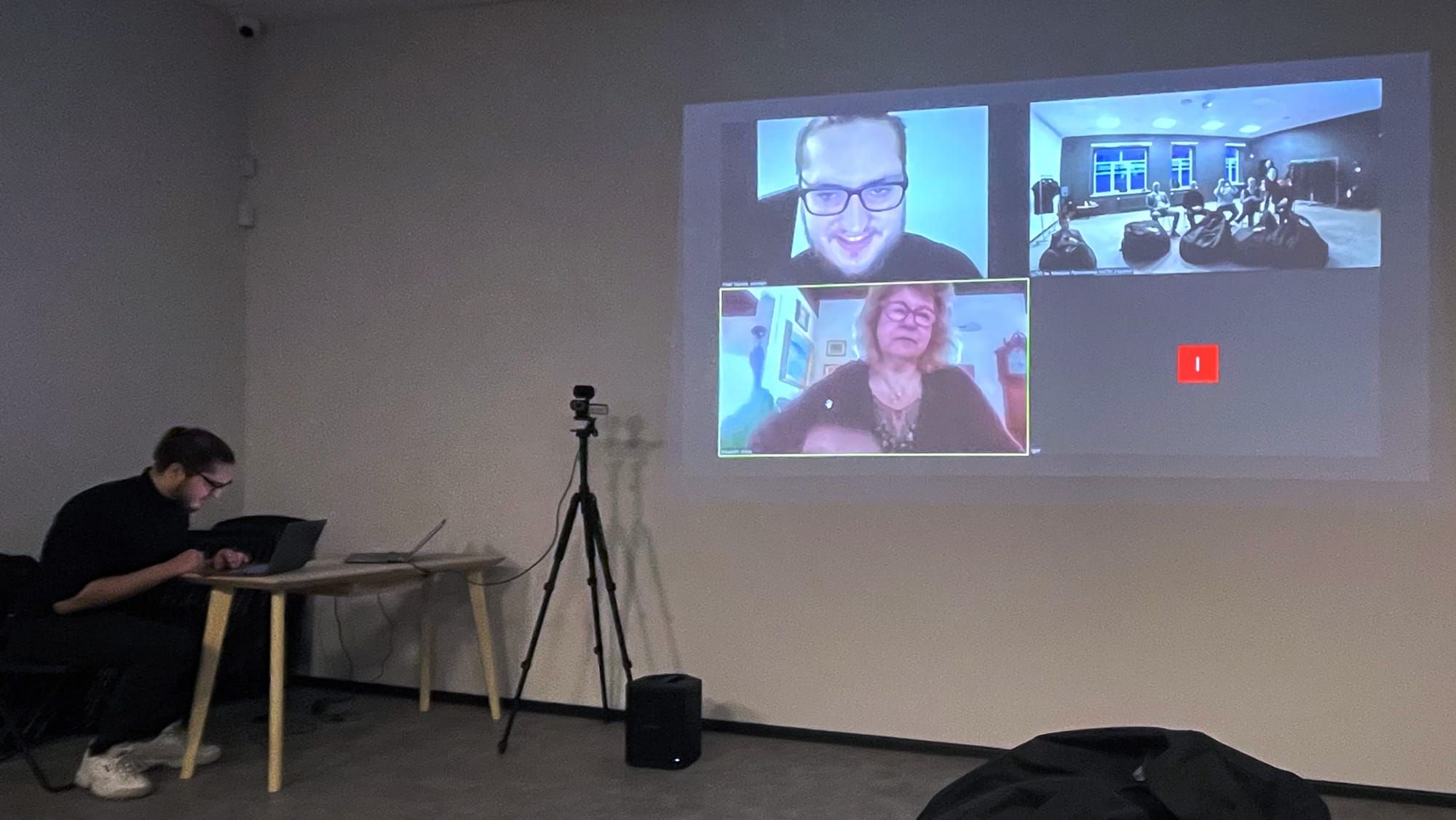
People from other cities in Ukraine and UPRA co-founder Elizabeth Ames from the US attended the meeting via Zoom.
The first two months of the war were a real test; each of us had many things to care about. How to survive or how to relocate, how to protect the family or how to stay calm, how to get money or how to help the army. But even in such a turbulent time, we managed to gather to crystallize the goal, an action plan, the association structure and prepare paperwork for UPRA registration. The number of hours of Zoom calls during that period is impossible to count.
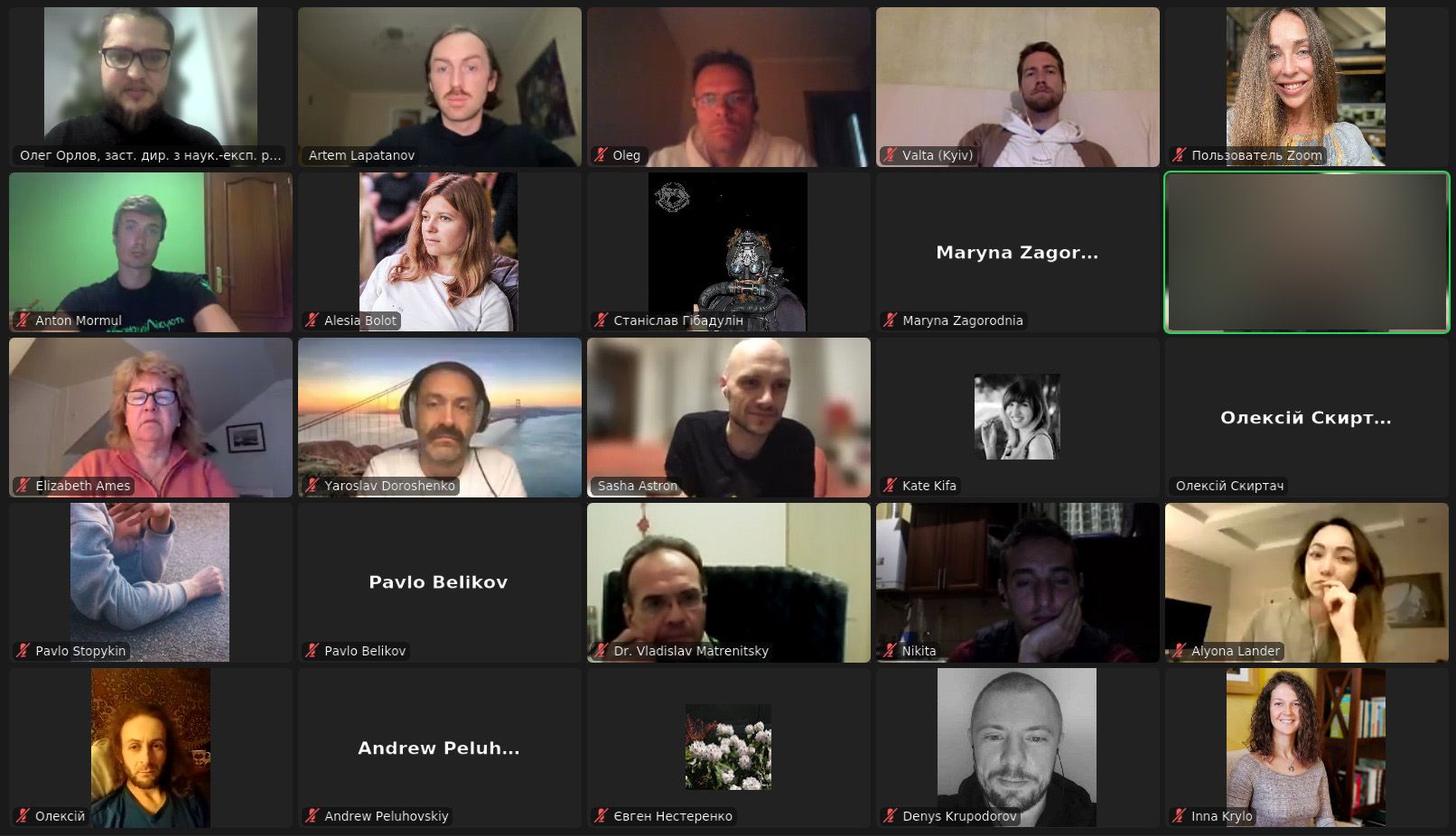
UPRA formed the groups according to competencies: work with partners and donors, scientific research and translation of articles, communications and marketing, etc.
Thanks to this preparatory work, today, UPRA is able to organize the experience exchange between American veterans and Ukrainian military doctors, establish connections for therapists training abroad, and develop scientific and clinical research in Ukraine. On December 30, UPRA was officially registered as a non-profit organization.
Community growth
In the early days of 2022, UPRA counted a little more than 20 people who coordinated in the Telegram group. After the February meeting, UPRA's appearance on social media, and the website launch, the community began to grow exponentially. We involved our friends, colleagues, and acquaintances. In May, there were already 88 members of the official Telegram group, more than 60 applications received through the site from activists wishing to join, and the same number of applications from therapists who want to learn psychedelic therapy. We launched our own newsletter, and the number of activists doubled over the next six months.
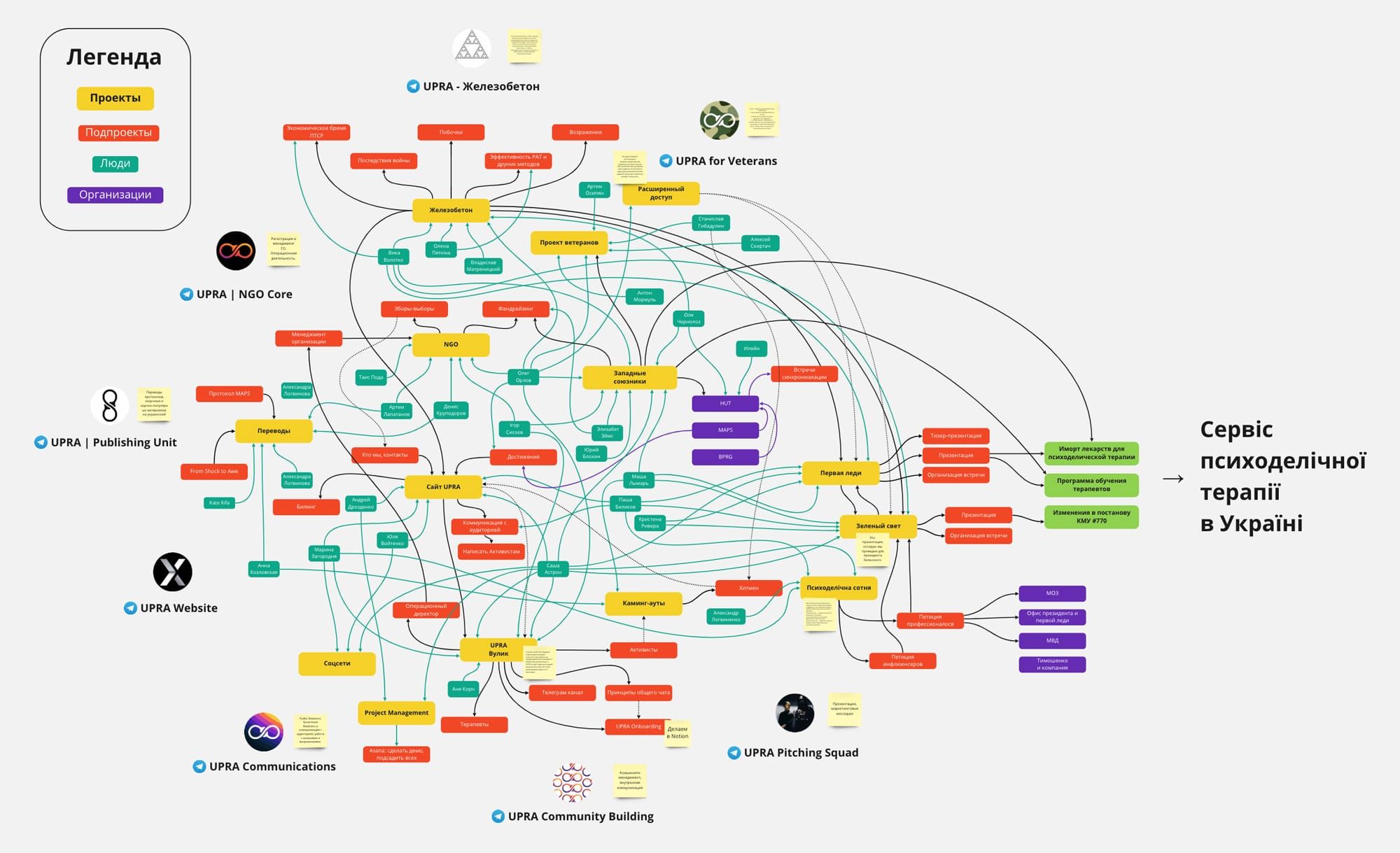
Before the list of UPRA projects appeared in Notion, we drew the organizational structure and had as much fun as possible.
Today, there are more than 200 members in the UPRA chat — from different cities, countries, and corners of the world. We have people from the US, Canada, Switzerland, and Spain. Doctors, business people, marketers, and the military are with us. Each of us is useful in our field. You can join discussions, suggestions, and news on the UPRA Vulyk (Hive) channel.
Presentations, Davos, and the website
In the spring, when the entire information space was filled with war, UPRA focused on presentations to Ukrainian officials to gain allies for rescheduling MDMA and psilocybin. UPRA emphasizes the need for changes to Resolution No.770 in appeals to the Ministry of Health, the Ministry of Internal Affairs, and the First Lady.
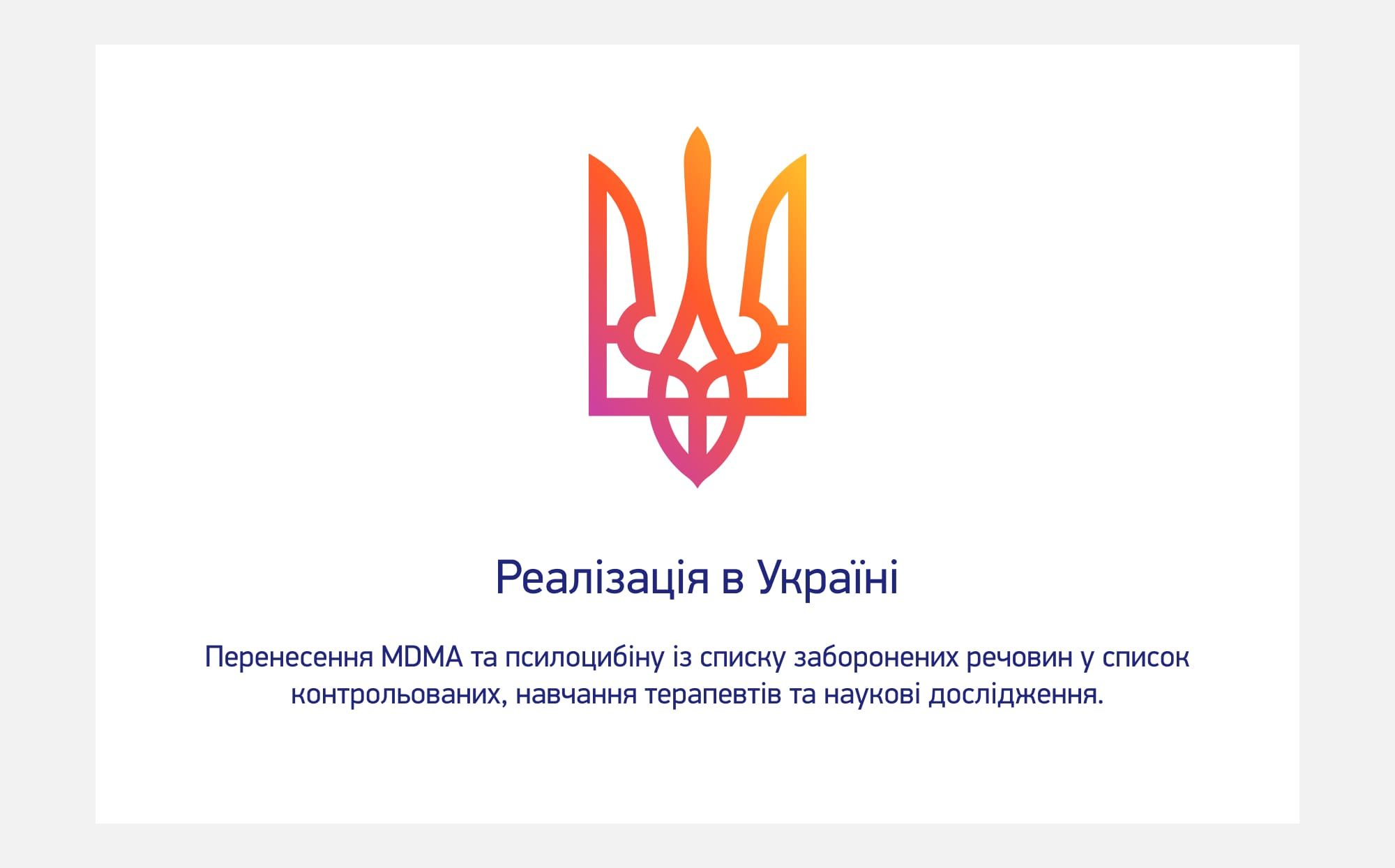
A slide from UPRA's keynote to Olena Zelenska. The full keynote can be found here.
At the end of spring, we had the opportunity to present UPRA at the World Economic Forum in Davos. Thanks to Oleg's’ efforts and the speed of the marketing team, UPRA prepared talking points for panel discussions and printed flyers. The appearance on such a platform brought us more recognition and many valuable contacts.
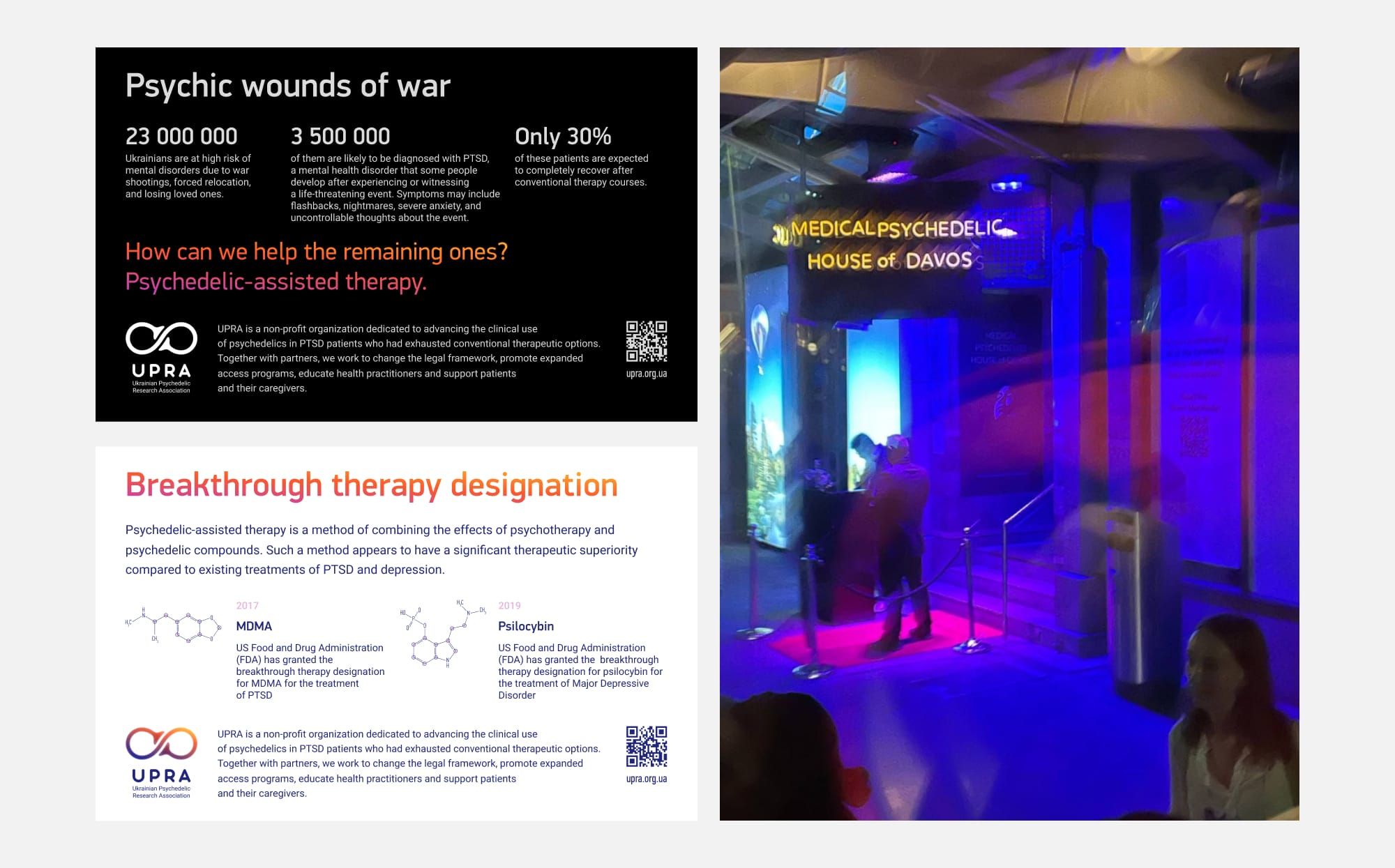
UPRA flyers and photos from Davos.
For the presentation in Davos, UPRA launched the website — at that time as a one-pager landing. Today, UPRA.org.ua is available in Ukrainian and English and has a contact form and a blog. So far, the site has been visited more than 5,000 times, and 260 activists and therapists have contacted us through the form.
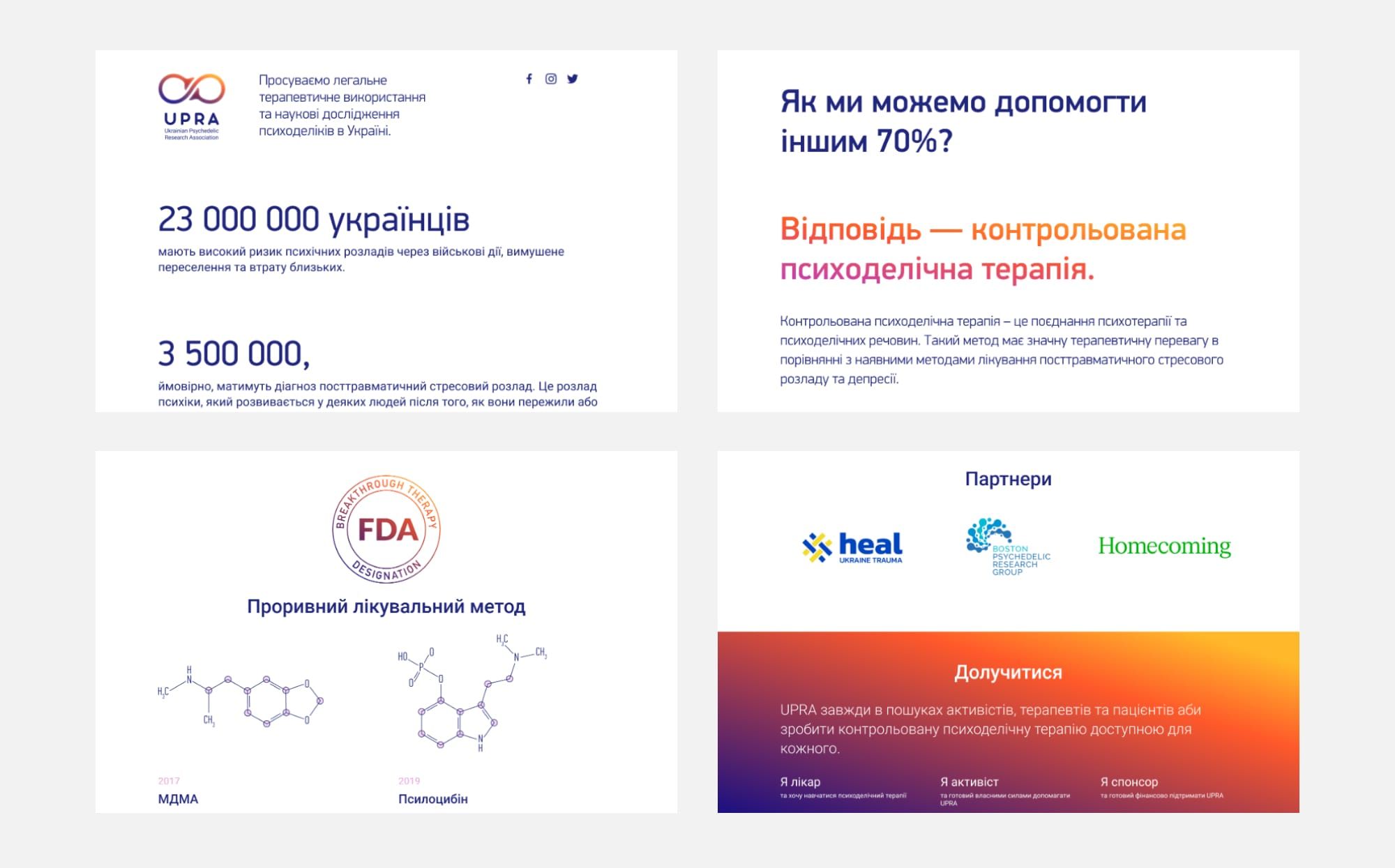
Upra.org.ua showcases the benefits of psychedelic therapy and the need for its legalization in Ukraine.
Success stories
Stanislav Gibadulin (Hitman) and Oleksiy Skirtach told their healing stories to show the effectiveness of psychedelic therapy in their cases. The UPRA blog also published translations of stories by Nigel McCurry and Jonathan Lubecki, former US militaries. They are united by the theme of severe, therapeutically resistant PTSD. Success stories help us communicate the goal of UPRA to the general public in the most comprehensive way.
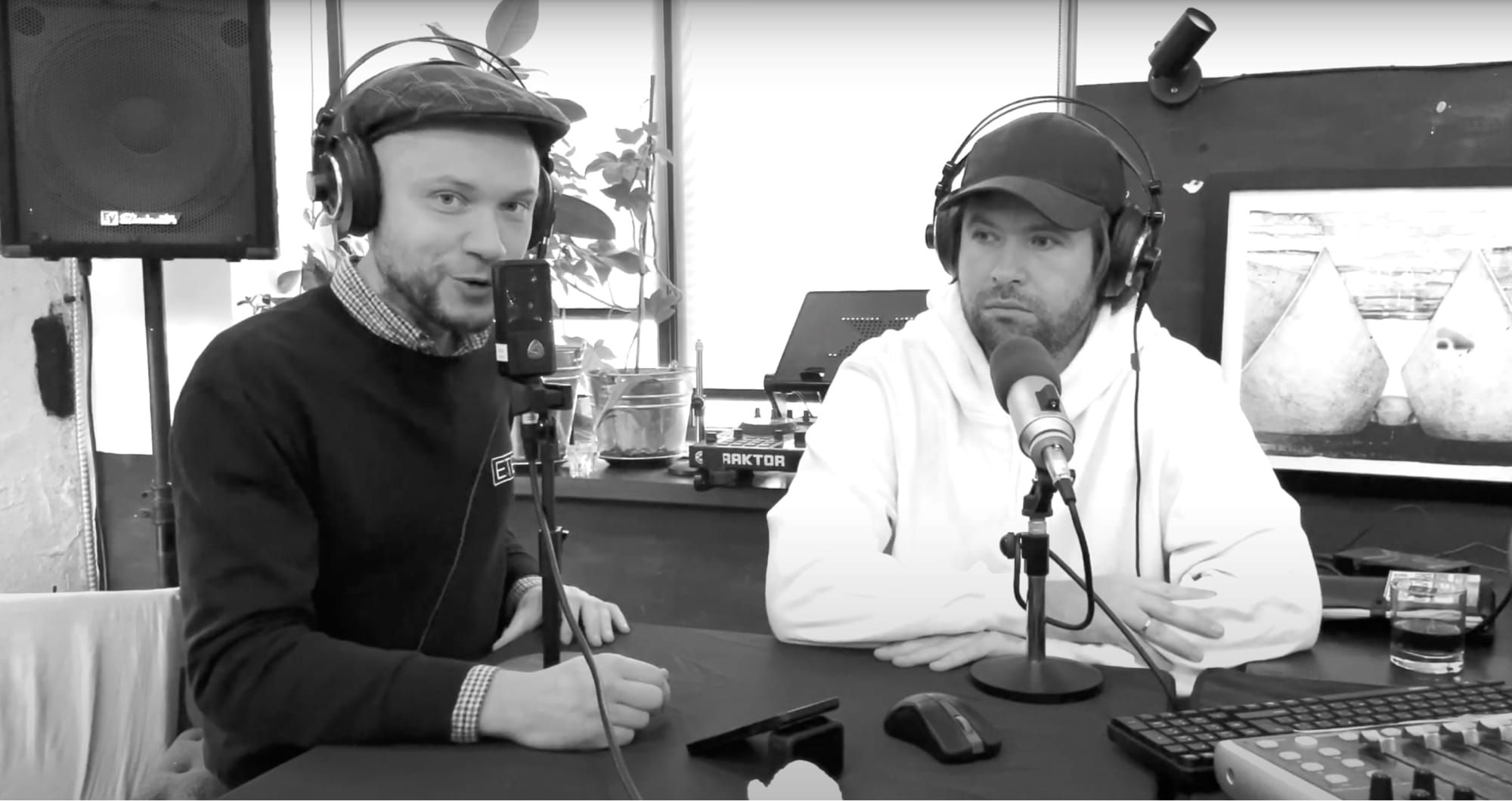
Psycodelia podcast has already been visited by several UPRA founders.
Andriy Pelyukhivskyi and Danylo Khomutovskyi started the Psycodelia podcast — a place where psychedelics are discussed in the broadest perspective. Among the guests are scientists, psychologists, psychotherapists, psychonauts, and people whose life was influenced or even changed by psychedelics.
Communication with law enforcers
The Security Service of Ukraine and the Ministry of Internal Affairs showed different attitudes towards psychedelic therapy. The Security Service of Ukraine responded to a collective appeal regarding changes to Resolution №770 that this issue is the competence of the Ministry of Health. At the same time, the National Police's response refers to the risks of "substance abuse", "additional burden on law enforcement agencies" and "violation of international obligations." Obviously, this is an attitude we will have to change in the future.
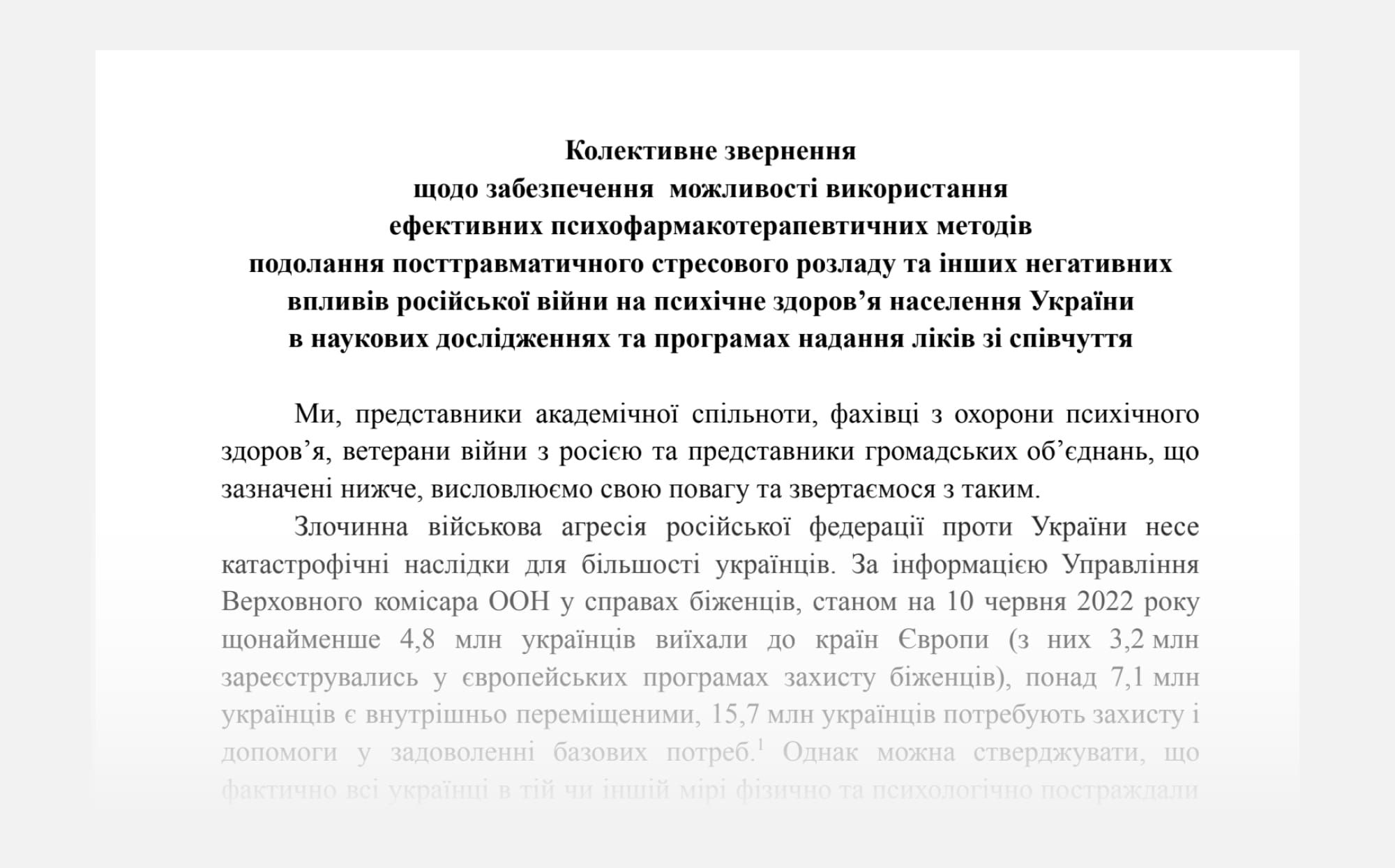
The appeal was signed by academic community members, mental health professionals, the military, and other civic activists.
We believe that next year we will be able to establish a dialogue with law enforcers. After all, in the process of rescheduling MDMA and psilocybin, their opinion is critical. UPRA is open to discussion, ready to join working groups, and hold events and webinars — all to ensure controlled access to psychoactive substances.
International support
The success of UPRA abroad is sometimes louder than in Ukraine. In addition to ongoing support from MAPS and BPRG, the association is gaining new supporters and opening the way to quality psychological education.
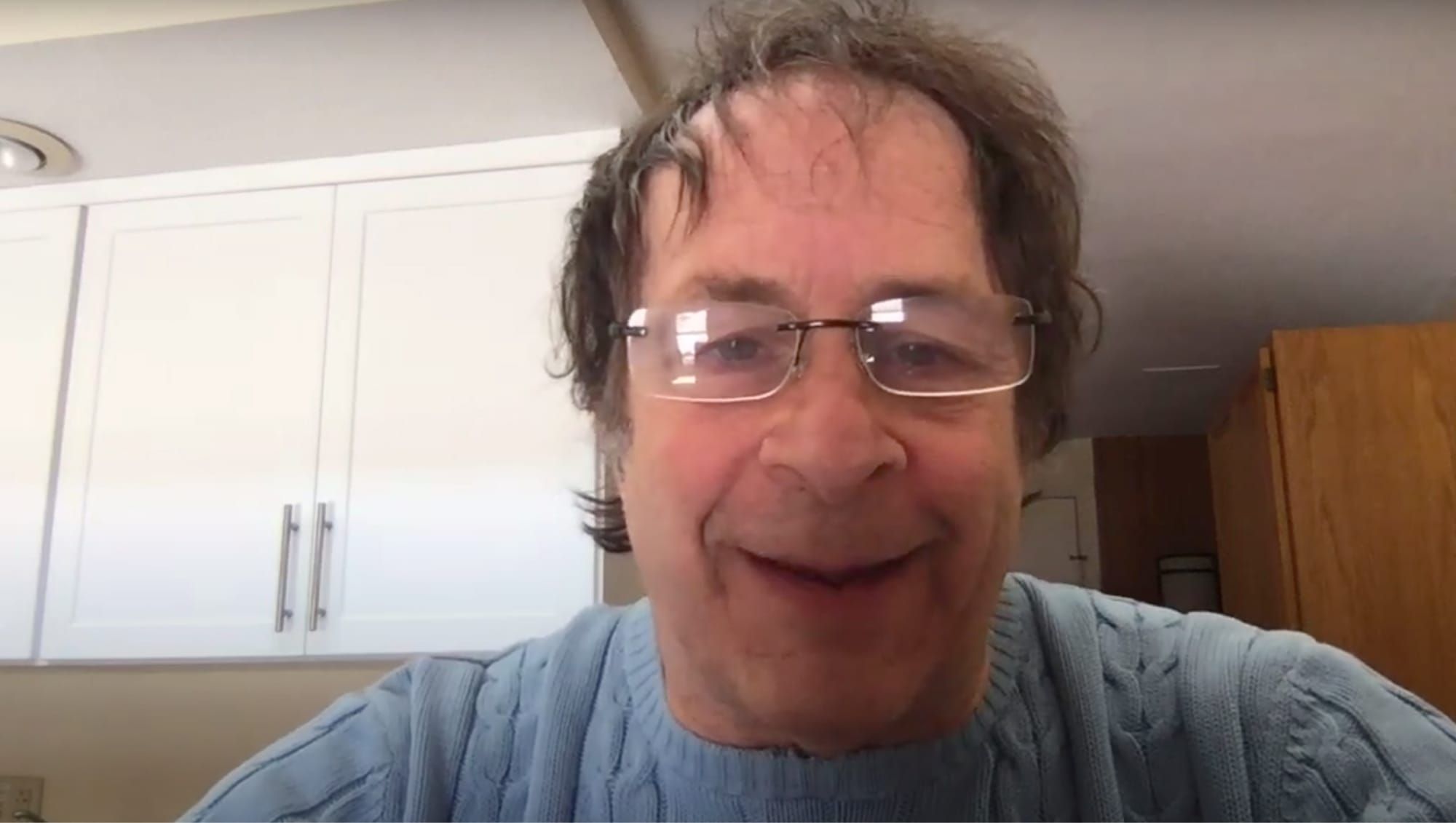
At a meeting with BPRG, Rick Doblin begins his speech with an overview of events in Ukraine.
The association was presented at the Interdisciplinary Conference on Psychedelic Research in Amsterdam, where we enlisted the support of world authorities in the field of psychedelic therapy and scientists. This year, the conference gathered more than a thousand specialists from the US, England, France, the Netherlands, Germany, Switzerland, Australia, Israel, Argentina, and Brazil.
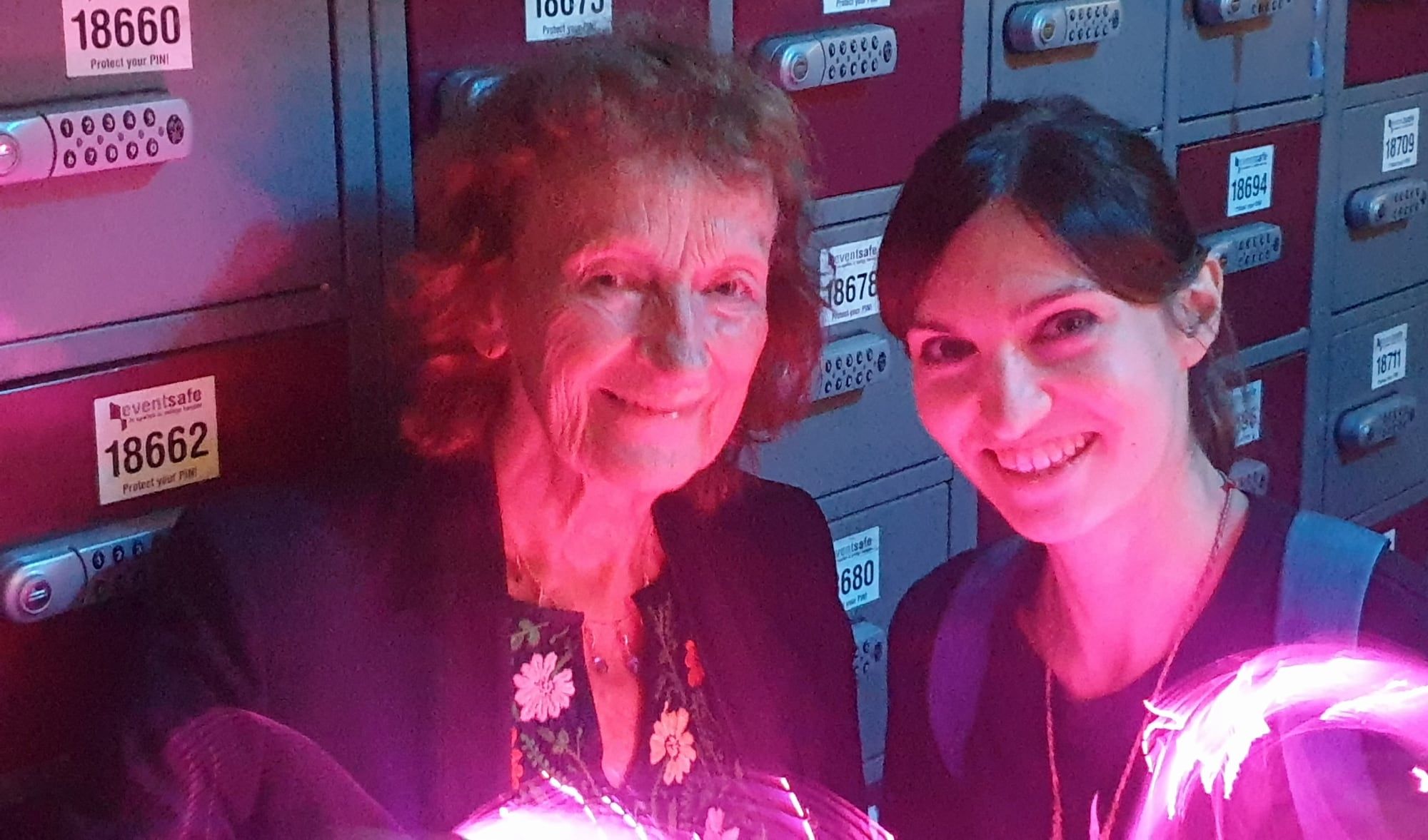
UPRA representatives met and talked with Amanda Feilding, David Nutt, Thorsten Passey, Rick Doblin, Janice Phelps, Paul Stamets, Christopher Timmerman, and others. We discussed what we are doing in Ukraine and thought about what we can do with joint efforts. For example, Amanda Feilding became interested in developing joint projects for Ukrainians who suffered from the war and PTSD. She expressed her desire to provide them with psychedelic therapy as part of a Beckley Foundation clinical trial.
As part of an educational collaboration, UPRA has begun translating a course on Psychedelic Integration from one of the largest providers of academic programs in the field of psychedelic therapy, Fluence. After translation and closure of administrative issues, the course will be available to all interested parties.
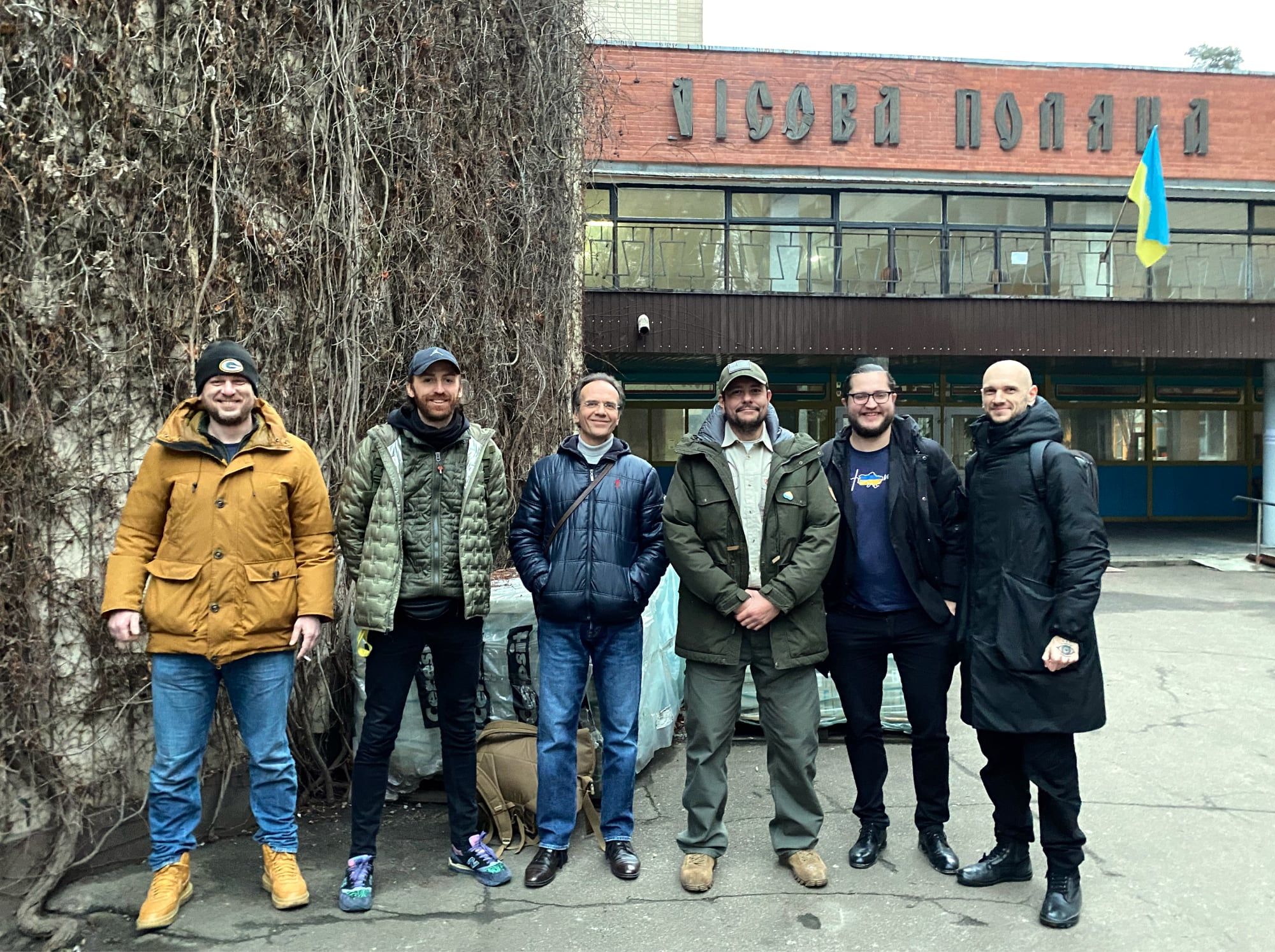
Today, we live in a reality where Rick Doblin recommends that Ukrainian officials contact UPRA regarding the psychological rehabilitation of the military, and US military veteran (and renowned ambassador for psychedelic therapy) Jonathan Lubecky is visiting Ukraine to speak with doctors, military personnel, and activists.
Plans for 2023
This year has shown the scope of tasks and revealed the UPRA potential. The following year promises full cooperation with Ukrainian officials — we have to come to an understanding with all interested parties — the Ministry of Health, the Ministry of Internal Affairs, veterans, and therapists. For this, it is necessary to focus on evidence-based studies from foreign and Ukrainian scholars. In terms of communications, we plan to do more reporting content, as well as write and film stories of healing using psychedelic therapy. Thank you for being with us! Stay tuned!